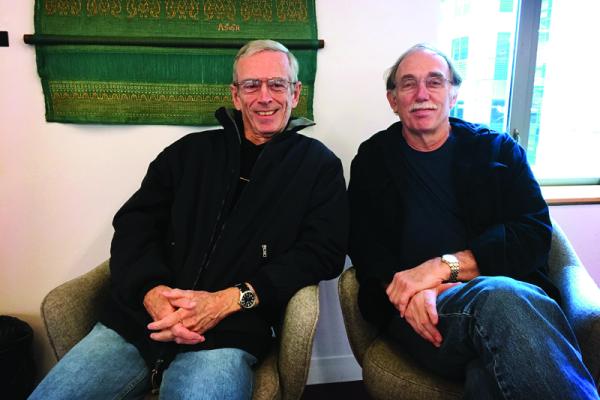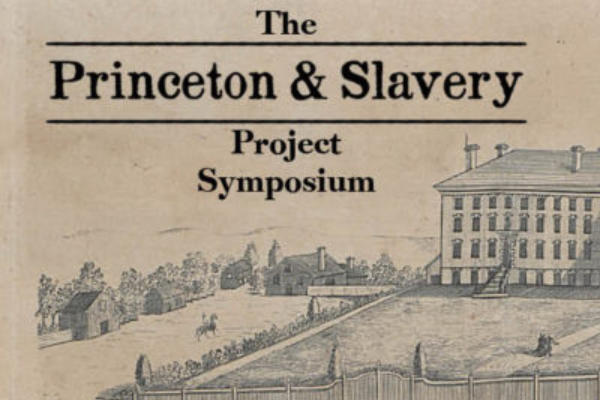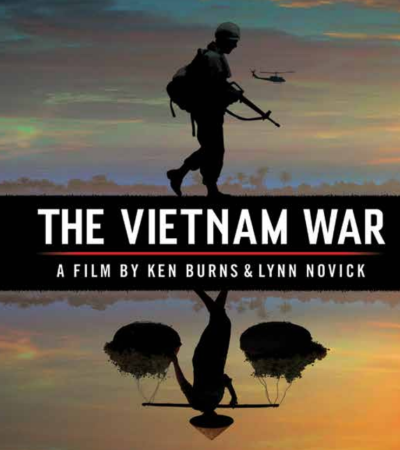What obligation do public libraries have to present and tackle difficult historical topics? What special opportunities can we present to our communities to dive into new or difficult histories?
Public libraries are prime spots for building new understandings of historical events, particularly those that are contested, messy or generally hard to discuss. Libraries can provide the space and tools for people to become better informed, discuss, and form new communities and understanding of one another and our shared histories. For Princeton Public Library (PPL), two particular series stand out as successful examples of this kind of programming.

The Vietnam War and human connections
Over the course of 10 weeks in winter 2018, PPL screened all 10 episodes of Ken Burns and Lynn Novick’s series “The Vietnam War.” Additional events in the series included book discussions, lectures and a talk about what was happening locally in Princeton and on Princeton University’s campus during the Vietnam War era.
One additional event that grew organically out of the series was a discussion led by two men: one a Vietnam war protesters, and one a draftee. They both attended all the screenings, got to chatting and offered to lead a discussion after the next screening.
Rather than an adversarial encounter between two men who experienced that era very differently, this turned into a rewarding experience for them and the other attendees of the series. At the discussion, they both shared their Vietnam War era experiences, and the other attendees also shared their motivations for attending: from trying to understand a brother who never talked about his service, to growing up outside of the U.S. and wanting to understand more about the era.
The library provided the resources and the space for attendees to learn and make connections with one another. The series provided an entrypoint to discussions with groups of people who did not know each other, or their shared pasts, before the series.
The Princeton & Slavery Project
Many universities and other organizations across the country have been researching and publicly exploring historical ties to slavery. Princeton University started their own Princeton & Slavery project in 2013, and work is ongoing.

Multiple organizations in Princeton took part in the public launch of the project in fall 2017, and PPL hosted several events including an Open Archive, film screening and discussion, and a historical exhibit.
By presenting the public with multiple avenues to engage with the history of slavery at Princeton University, PPL played an integral part in sharing part of our town’s history. Attendees at PPL programs (and others) were presented with historical narrative unfamiliar to them. Discussion time was built into all the programs at PPL to ensure that attendees had opportunities to ask questions about what they learned. Each of the events in the series had wonderful audiences whose presence and questions demonstrated their desire to learn more.
Difficult? Dive in anyway
What do I mean by “difficult?” For whom are these topics difficult, and why?
I categorize these two examples as difficult for different reasons. In the case of the Vietnam War series, the history of the Vietnam War is fraught. Those who served in the war were not welcomed home, and the legacies of PTSD continue to the present. For the families of servicemembers and the larger population who lived through the Vietnam War era, the PBS series offered new information, and the library helped provide a space to discuss further.
In the case of the Princeton & Slavery Project, it’s a common myth that slavery did not exist in northern states. The findings of the project challenged that kind of assumption with an abundance of evidence, demonstrating that Princeton earned its nickname as “the Southern-most Ivy.” Although the Princeton & Slavery project tackled history that took place before anyone alive today was born, the legacies of slavery live on locally and throughout the country.
As trusted spaces for delivering information, public libraries are in a prime position to present and tackle these kinds of difficult historical topics. By providing multiple avenues into tough topics, community members choose how they want to learn new information and connect to one another. Both of these series were presented with community partners, and with plenty of context and engagement opportunities. Although there may have been strong feelings about both the Vietnam War series and the Princeton & Slavery series, our community was receptive and the library received positive feedback about both series.

